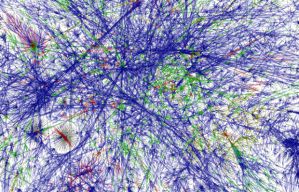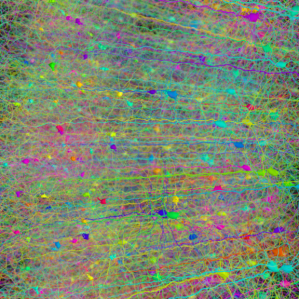 I was dipping into Ryszard Kapuściński’s The Soccer War, struck again by the brilliance of the writing, the reporting of revolution and coups in the 1960’s onwards, as colony after colony tumbled, and independences were gained and regained. His insights retain their acuity well after the passage of so much time and little seems to have been lost in translation. In writing about Algeria, he says Colonialism fosters social chasms […] Colonial policy elevates a class of ‘cultured’ and ‘reliable’ natives while pushing the rest of society down on a stratum of poverty and ignorance. Different continents, different circumstances, but there is a familiar ring to it… And elsewhere, “… We knew exactly as much as they wanted us to know. Now it’s hard to change”.
I was dipping into Ryszard Kapuściński’s The Soccer War, struck again by the brilliance of the writing, the reporting of revolution and coups in the 1960’s onwards, as colony after colony tumbled, and independences were gained and regained. His insights retain their acuity well after the passage of so much time and little seems to have been lost in translation. In writing about Algeria, he says Colonialism fosters social chasms […] Colonial policy elevates a class of ‘cultured’ and ‘reliable’ natives while pushing the rest of society down on a stratum of poverty and ignorance. Different continents, different circumstances, but there is a familiar ring to it… And elsewhere, “… We knew exactly as much as they wanted us to know. Now it’s hard to change”.
Epistemic colonialism, the policy and practice of a power in extending control over others specifically in the sphere of knowledge, might well be the most insidious consequences of the different periods of colonialism that we have experienced. Our educational system is a consequence of this and is still Macaulayan in essence, retaining the imprint of our colonial history in its every aspect- the structures and bodies of all our universities, the subjects that are still taught, the degrees that we earn- all carry a mark of what and how much we were required to know. And it is proving very hard to change…

My concern in this post is in the evolution of epistemic colonization through the internet or more generally how the new media is used for its establishment, propagation, and growth. A catalyst for the growth of these concerns is the recent discussions, including the very public debate in our Parliament, that have made the issue of net neutrality, namely the principle that all Internet traffic should be treated equally, very relevant. The rhetoric, however, elides an important fact: the internet is intrinsically not a neutral space. In terms of value, or in terms of perceived value, the net is most certainly not neutral. And, in addition, not isotropic, at least not equal in all directions. This asymmetry plays an important role in the manner in which information is transmitted, and through that, the way in which knowledge moves around and is valued in the academic sphere.
Commentators have often pointed out that (as a body) we tend to respect knowledge and information that originates from or is validated by agencies that are located typically in the west. A consequence is that we also respect our own scholarship only when it is published and/or otherwise validated in the west and not in India. In fact, we even learn more willingly from sources that are western or that are trained in the west (an exception might be made for the notorious three-author kunjis that are required reading for passing university exams, but even they are usually poor copies of standard western texts).
The above issues have changed in the time of the internet through a process of digital colonization: spatial location is unimportant, historical connection is almost irrelevant, the immediate beneficiaries could well be unknown, and it happens faster than ever before. The colonization, such as it is, is complete- in all essential aspects- accelerating and exacerbating the already well-known issues of self-esteem that confronts academics in our country. What this does to our internal compasses- cultural, intellectual, or even moral- is a matter that should concern us, especially since the internet and social media is all pervasive and (for these times, at least) permanent.
Given that the preponderant language of internet discourse is English, and that the overwhelming majority of innovations in hardware or software occur typically in the west or (at the very least) in the global north, there are similarities to our historical past, but I should make it clear that this is not a rant against the evil west. For one thing, that is a bit dated anyhow, and we are, for better or worse, part of a global consciousness that counts both Plato and Einstein as one of “ours”, as much as we do Ramanujan or Kalidasa.

However, the internet has become central to many of the fundamental ways in which we value or evaluate scholarship. If information is not available digitally, it is invisible. If meta-information is not available on a document, it is not just invisible, it is unimportant. Indeed, epistemic value is almost synonymous with how easily an object (or idea) is located by a popular search engine such as Google or whether it has its page on Wikipedia, or some similar measure of relevance.
Much of our scholarship in India therefore suffers from invisibility, most obviously when in languages other than English, but also work that appears in journals that may not have internet presence. The argument that the responsibility for this is ours cannot be countered, but the barriers that need to be crossed can sometimes seem very high, and are often growing higher. Wikipedia, for example, does come in many Indian languages, but many of the pages tend to be translations, and in any case, would be missed by most search engines.
The search engine is undeniably a major tool in contemporary research. Google, in particular, has changed so much of the way in which we retrieve information. Whether Google or any other, all search engines employ algorithms to search for information and display them in an order than depends on various criteria that include, among other things, the importance of each page as determined endogenously. A piece of work, regardless of its intrinsic quality, is effectively invisible to the vast majority when it does not appear on the first two pages in response to a search query.
Over the past few years, many of the leading journals in the world have also gone digital- there are no print versions, so that accessing them is only possible via the internet. Many high quality journals (such as the Public Library of Science family) are born digital, and many of the older and highly prestigious journals have expanded, adding additional specialty offshoots that are purely digital (such as the various new members of the Nature family). This not only changes the way in which scholarly papers are read, namely online, but it also decides, indirectly, who reads them. Even though several of the new online journals are “open access” and there is a significant movement to support open access publications of scholarly articles, the fact that access to scholarship is only possible via the internet induces an inherent asymmetry. At the same time, the impetus to publish in online journals has increased. In part this is because getting into some of the more prestigious ones can ensure visibility, and in part, the proliferation of purely online journals has meant that more than ever before, there is a journal for each article.
Visibility matters, not just for the obvious reason that every scholar likes her or his work to be read, understood, and appreciated, but it matters for career progression and for reputation. Publications have always mattered for academic promotions, especially in higher education, and today, there are several metrics that help academic administrators decide a candidate’s worth: the number of citations, the h-index, the impact factors of journals, and so on. These indices eventually can substitute for the value of the scholarly contribution; getting published in a specific journal becomes the goal, regardless of whether the original research objectives might have been subverted in the process.
 The internet has gradually thus assumed an epistemic role, one that does not just dominate the process of scholarship and knowledge creation today, but in many cases, determines its course. That this still manages to leave us intellectually colonised in world that is otherwise relentlessly globalizing is one consequence, of course, but it is a consequence that we accept, and more often than not, regrettably, one that we seem to expect.
The internet has gradually thus assumed an epistemic role, one that does not just dominate the process of scholarship and knowledge creation today, but in many cases, determines its course. That this still manages to leave us intellectually colonised in world that is otherwise relentlessly globalizing is one consequence, of course, but it is a consequence that we accept, and more often than not, regrettably, one that we seem to expect.
